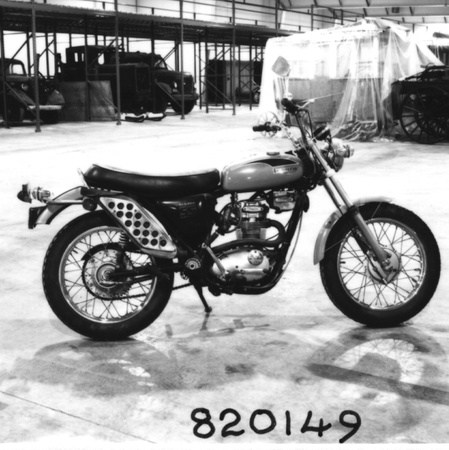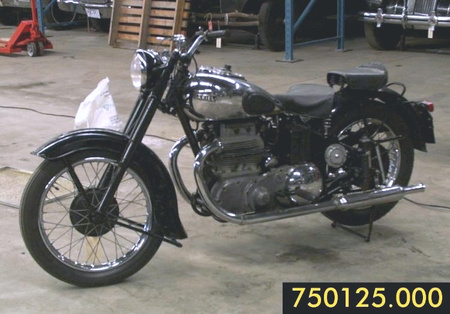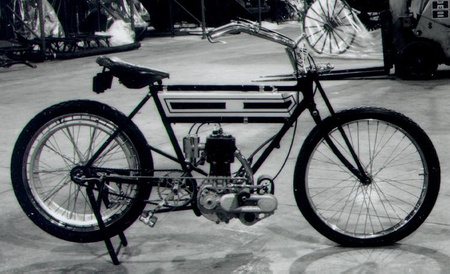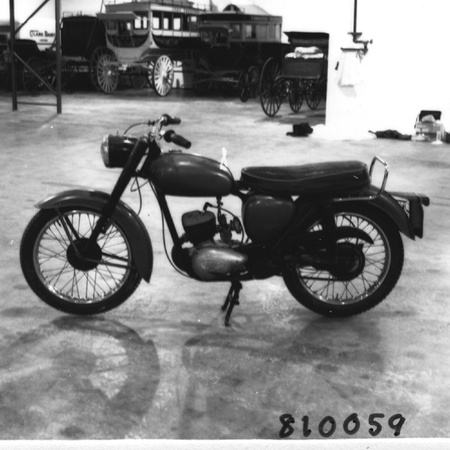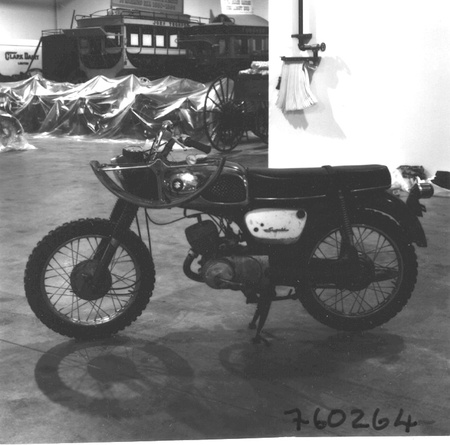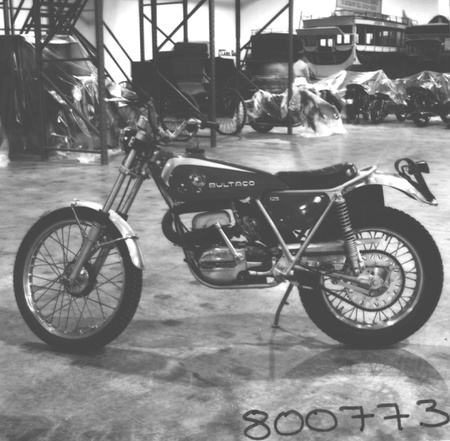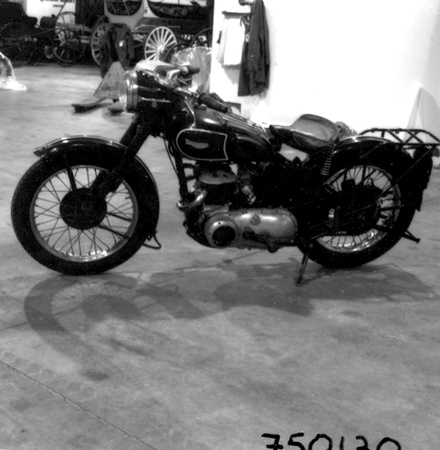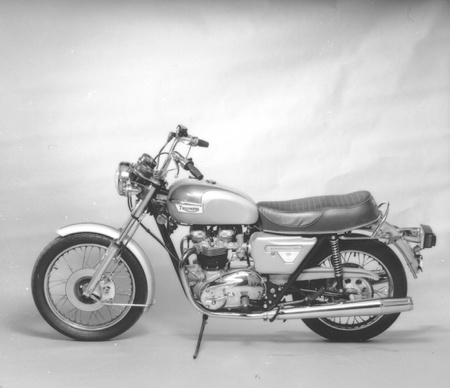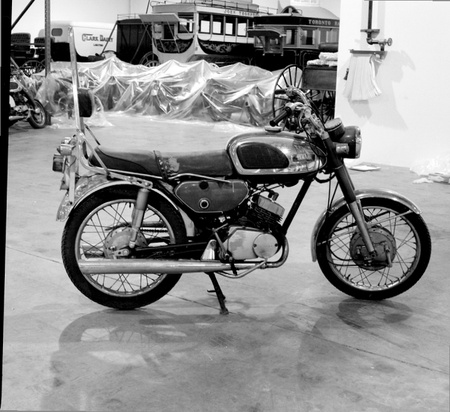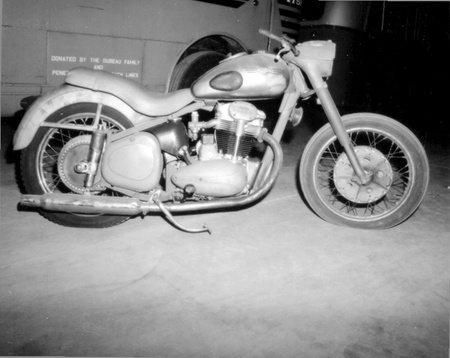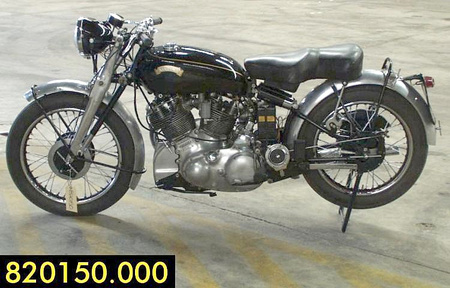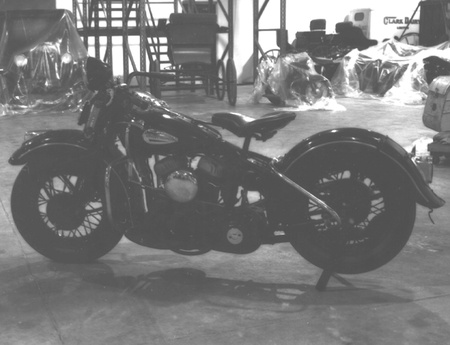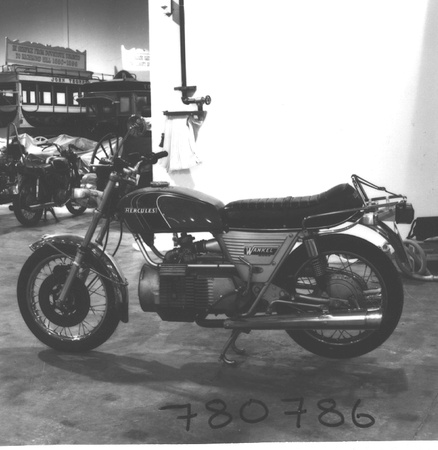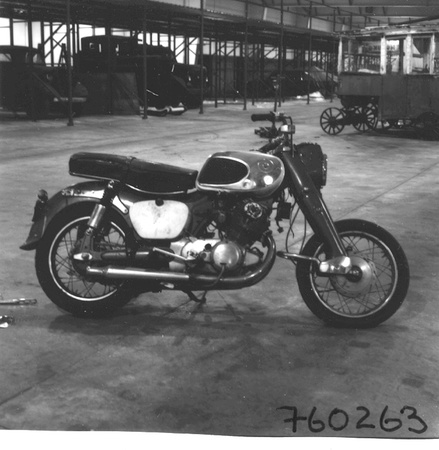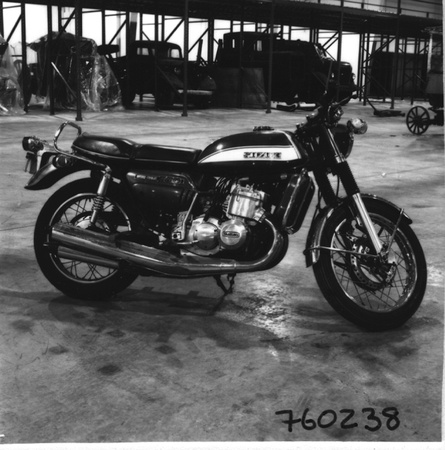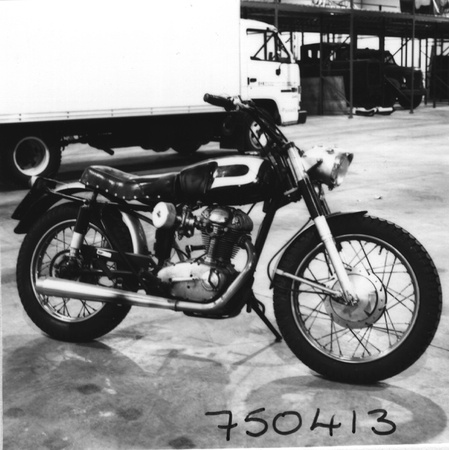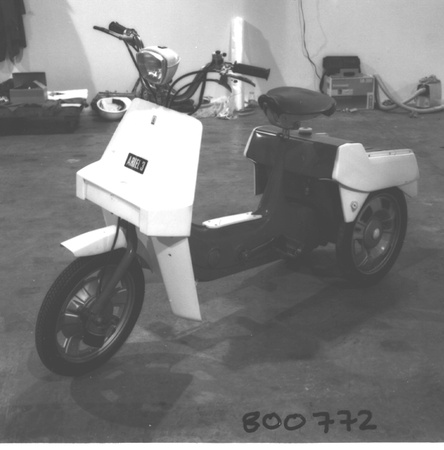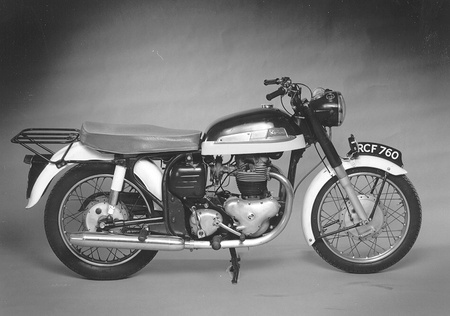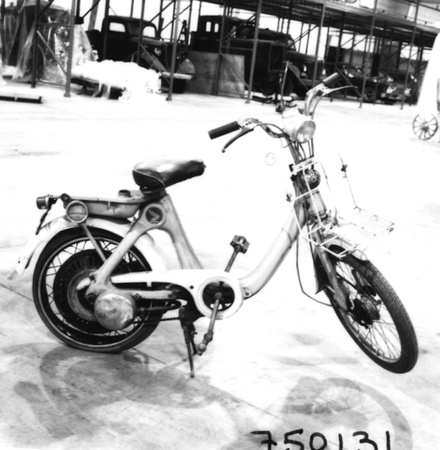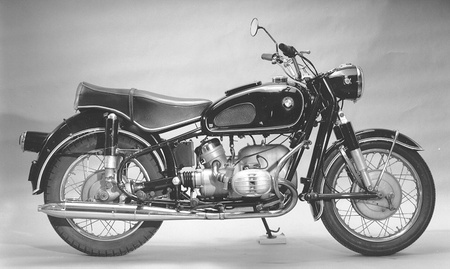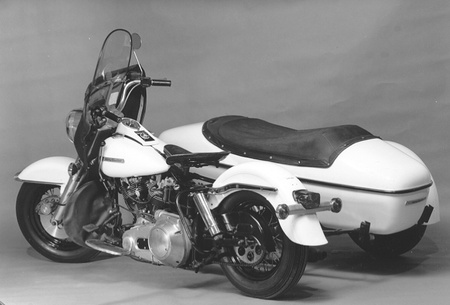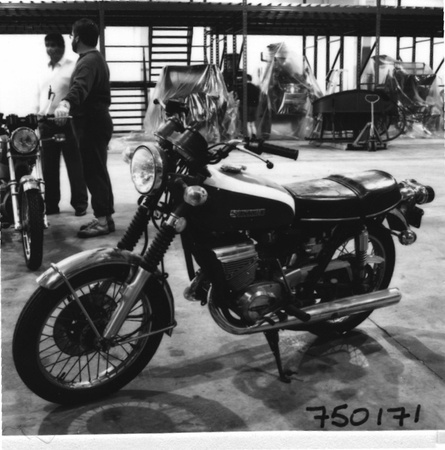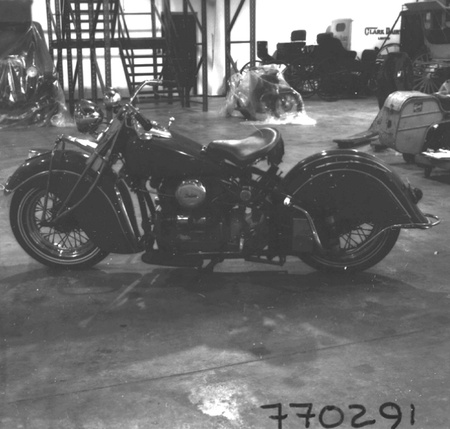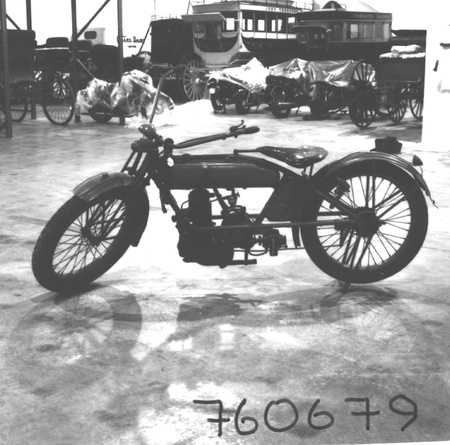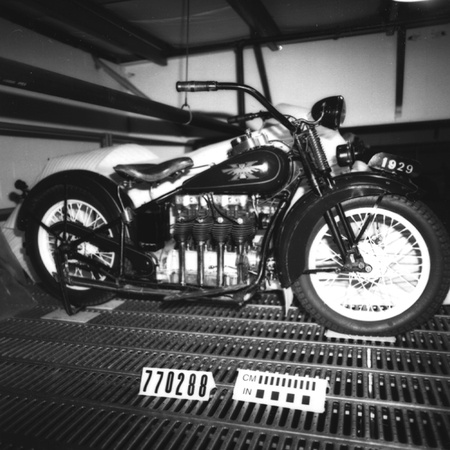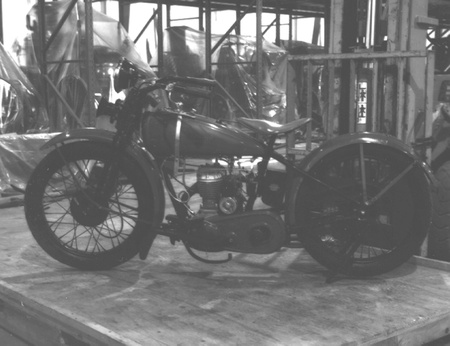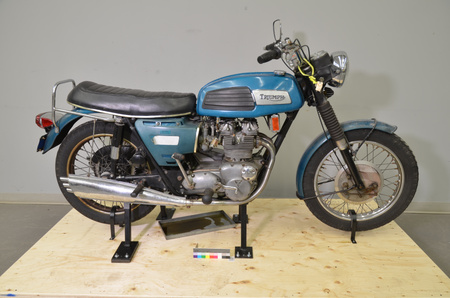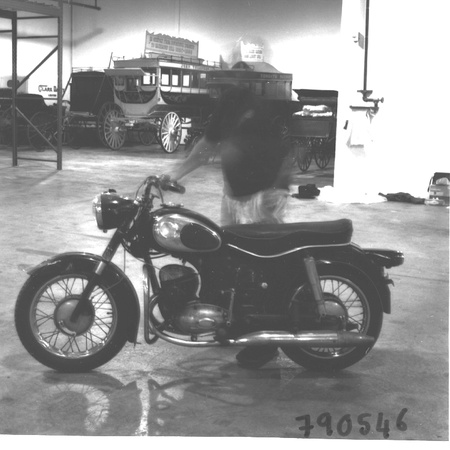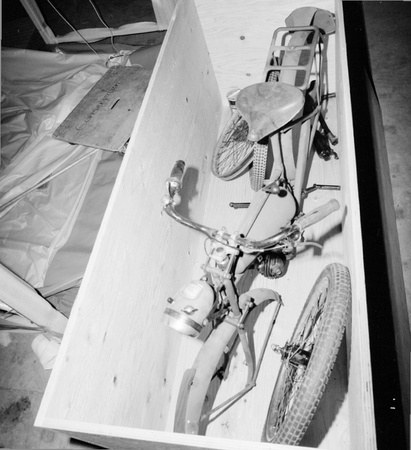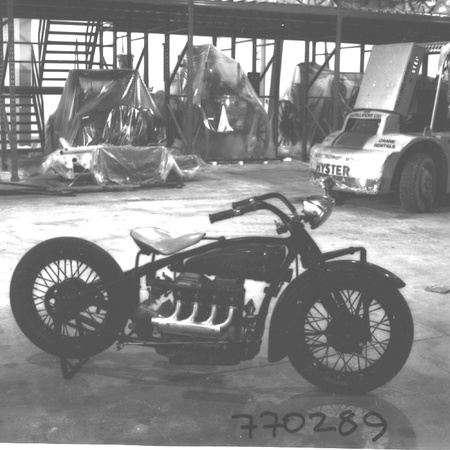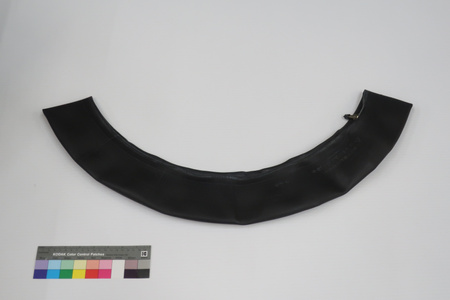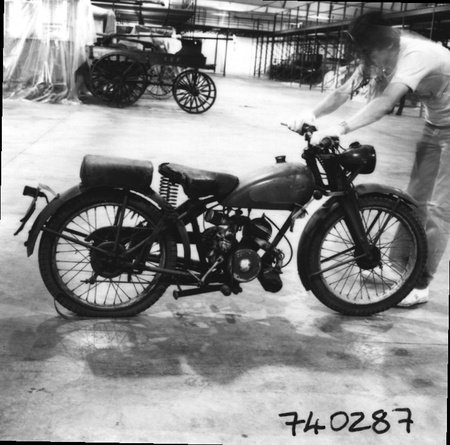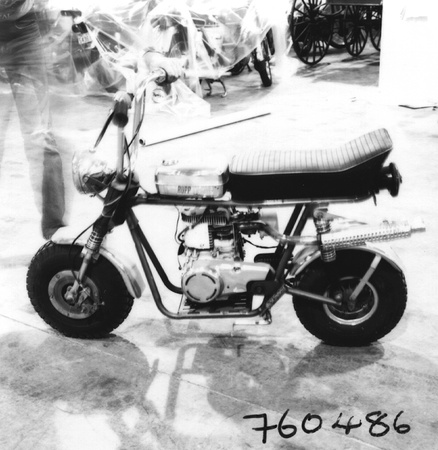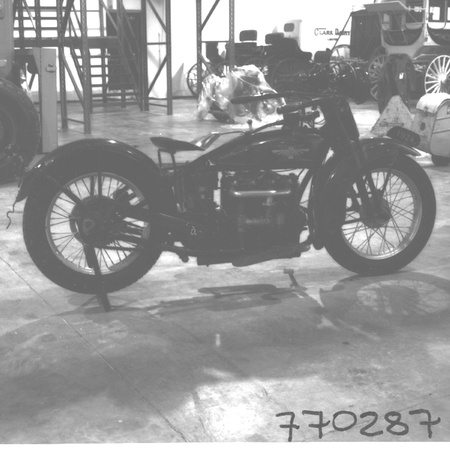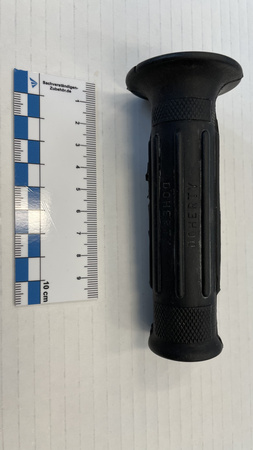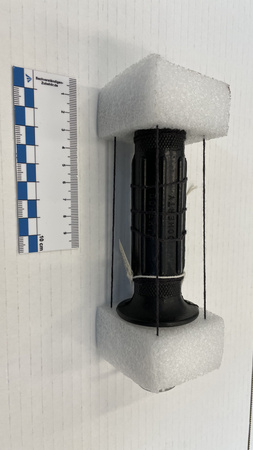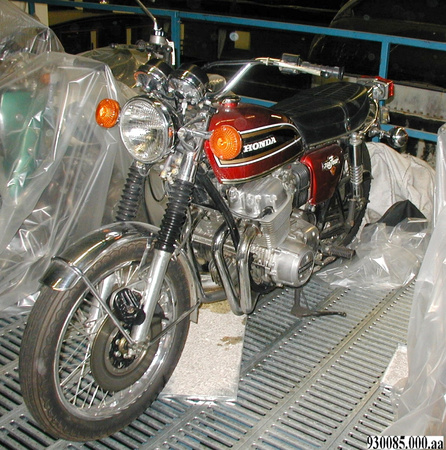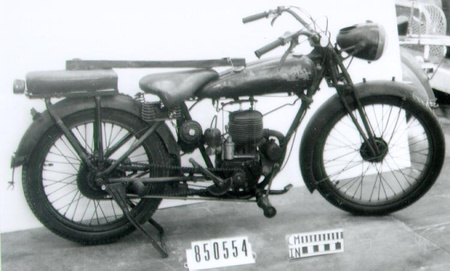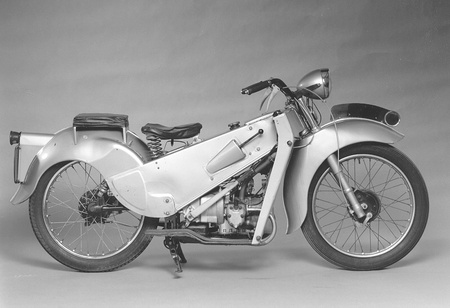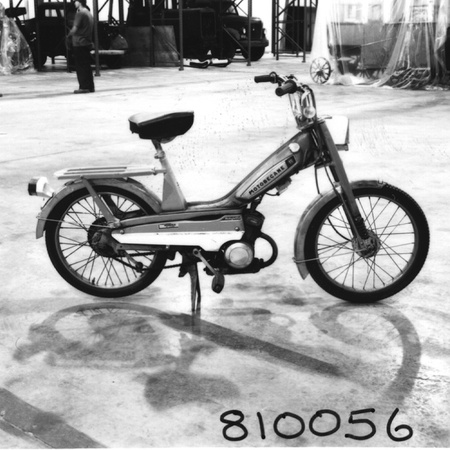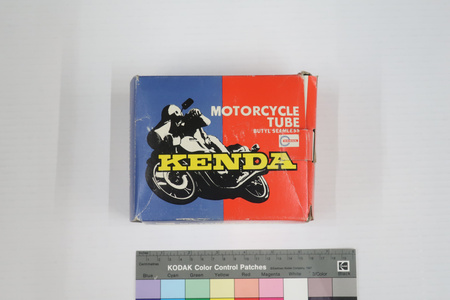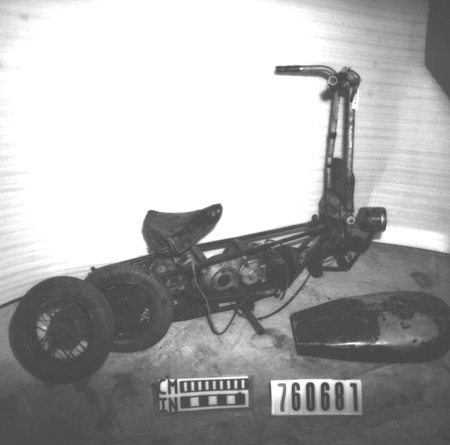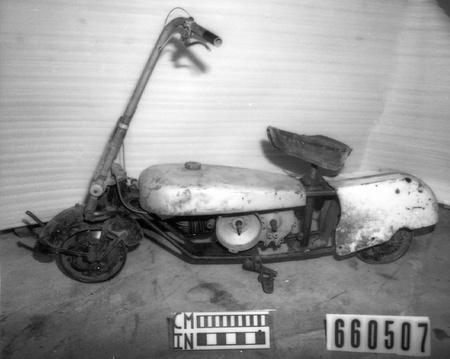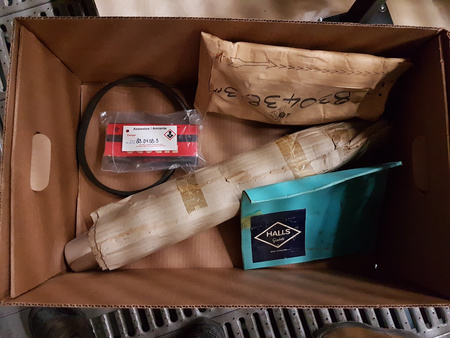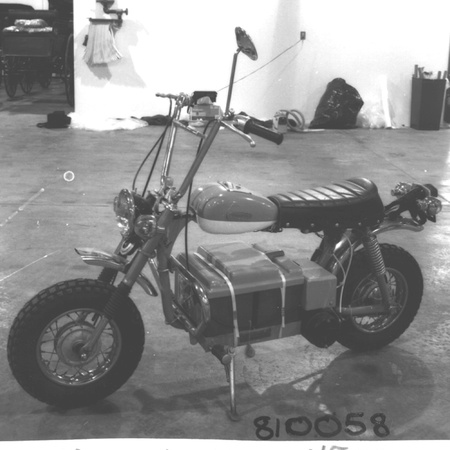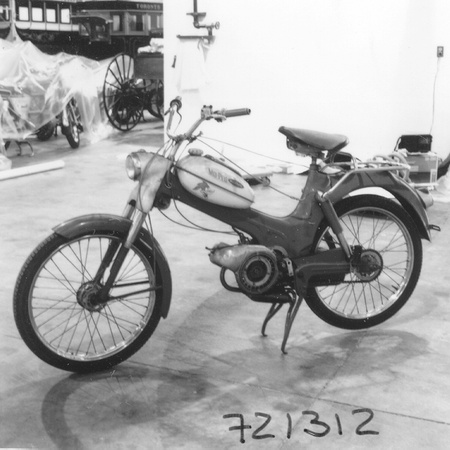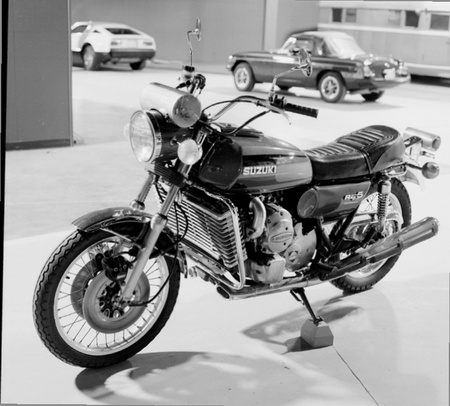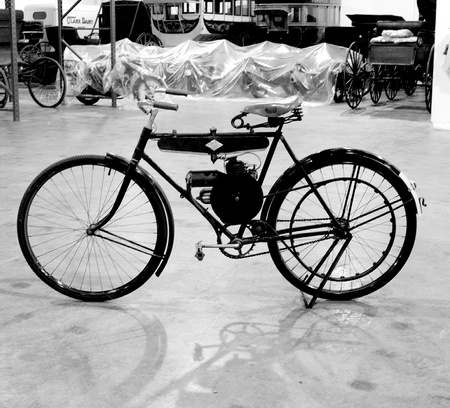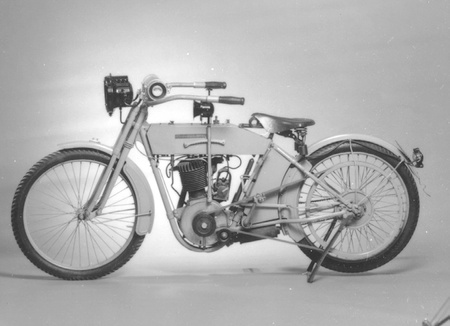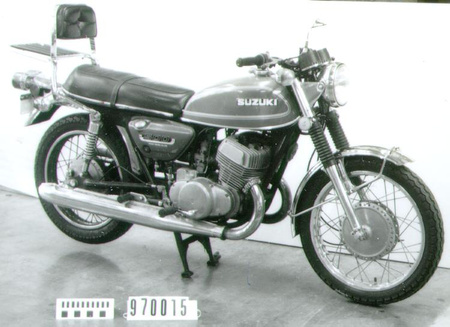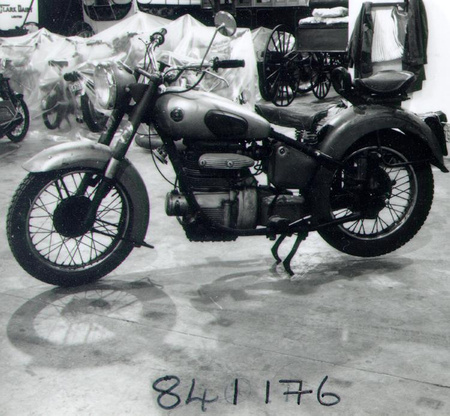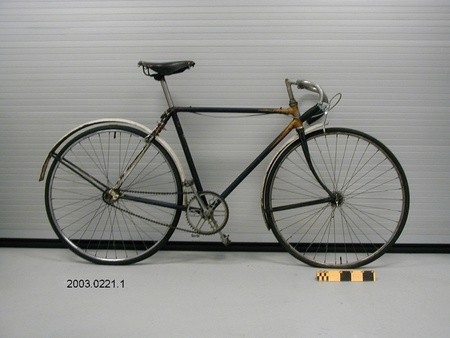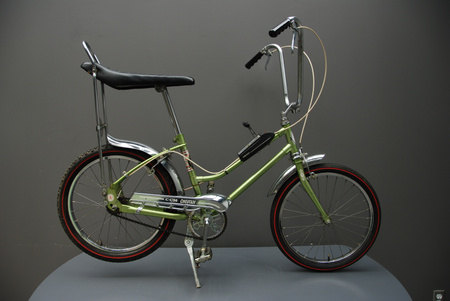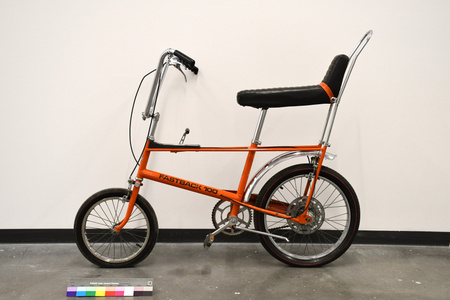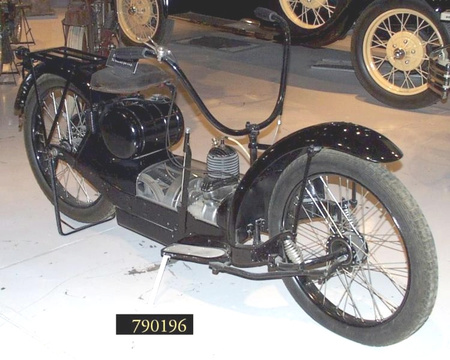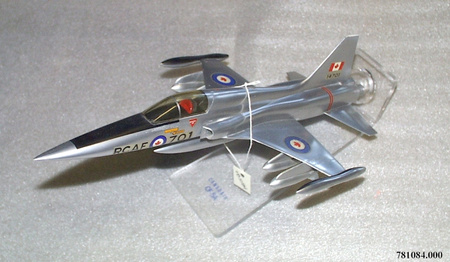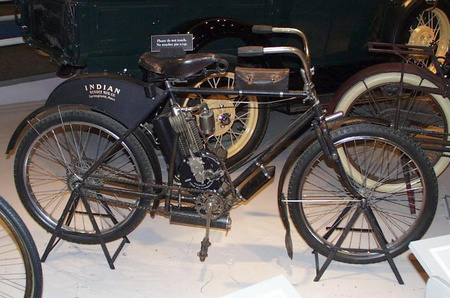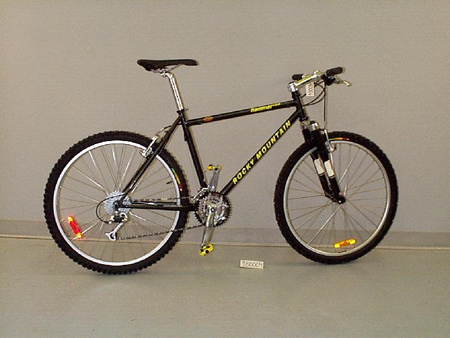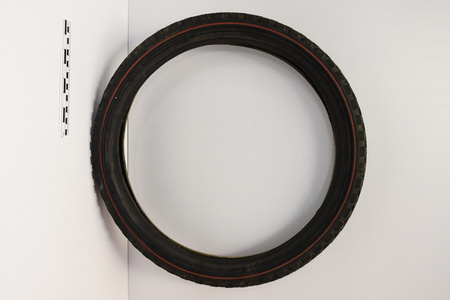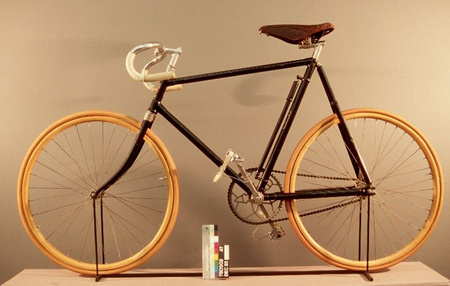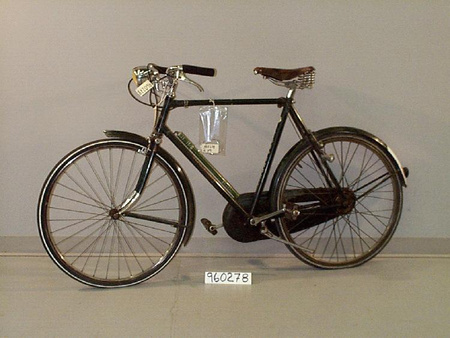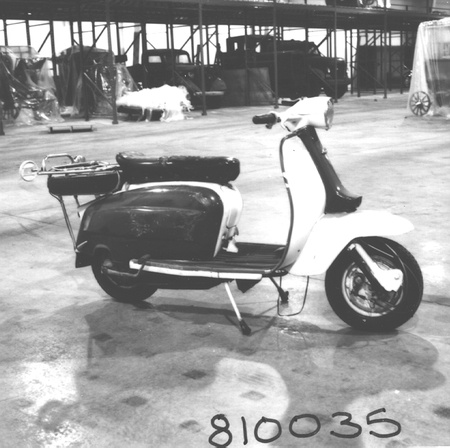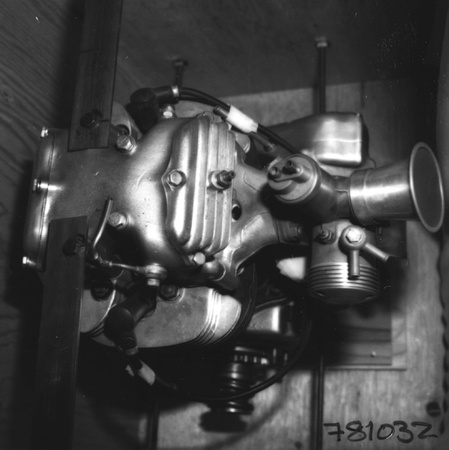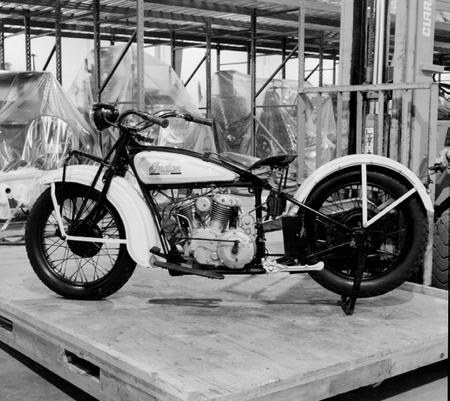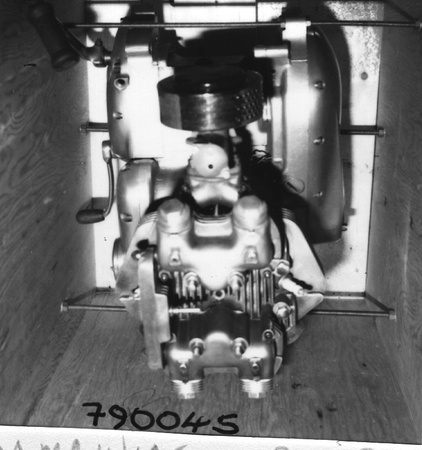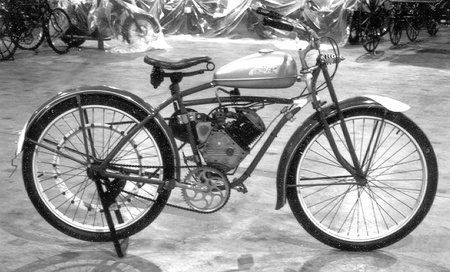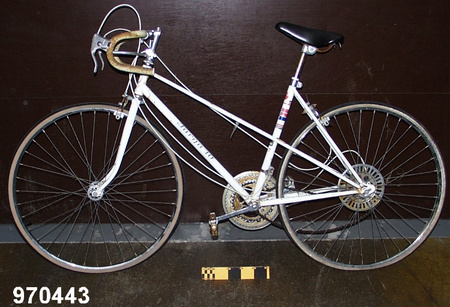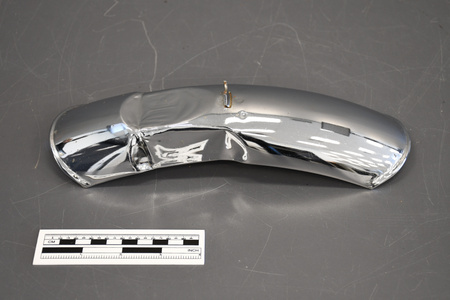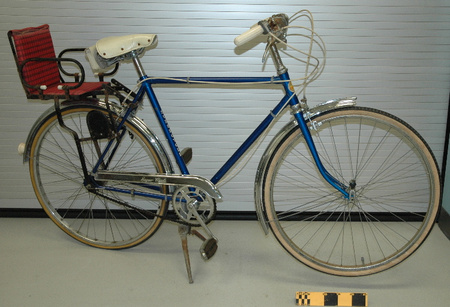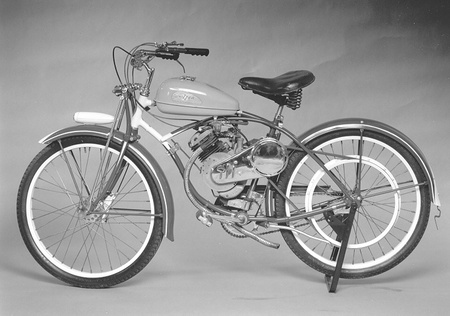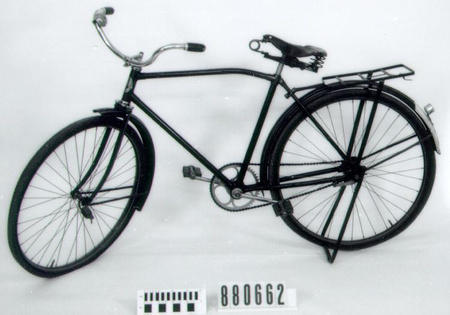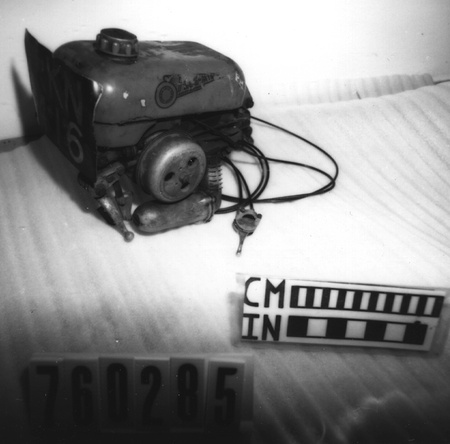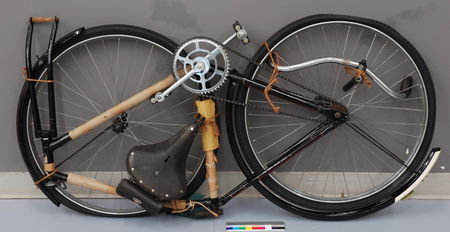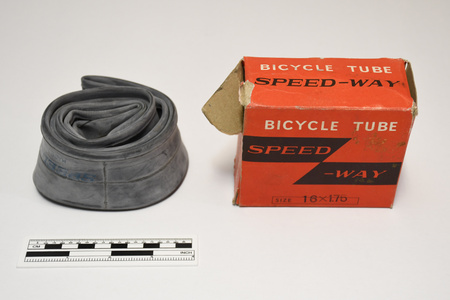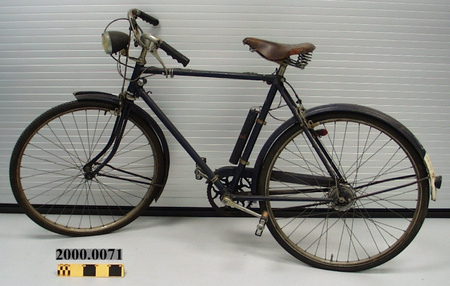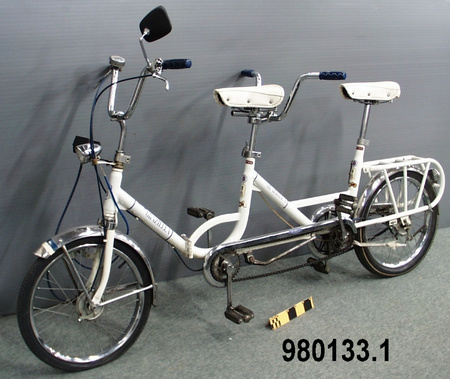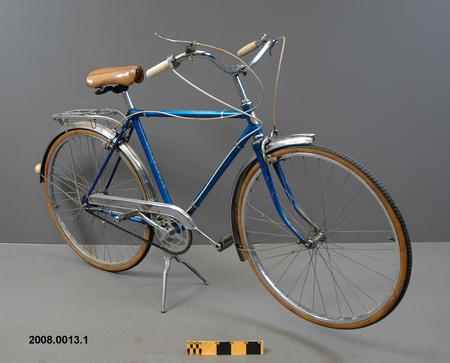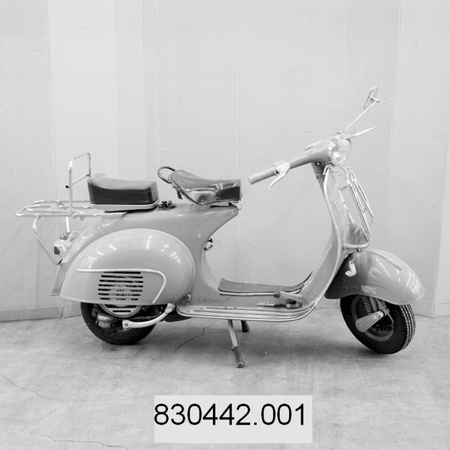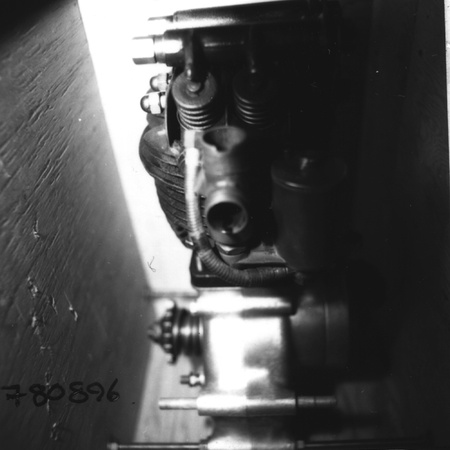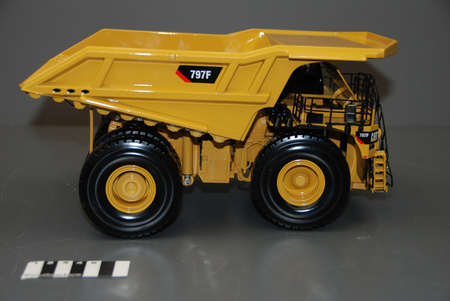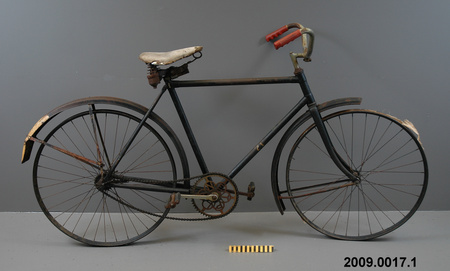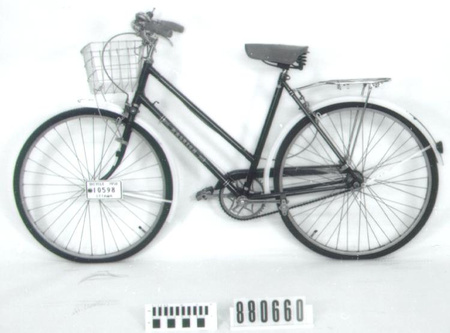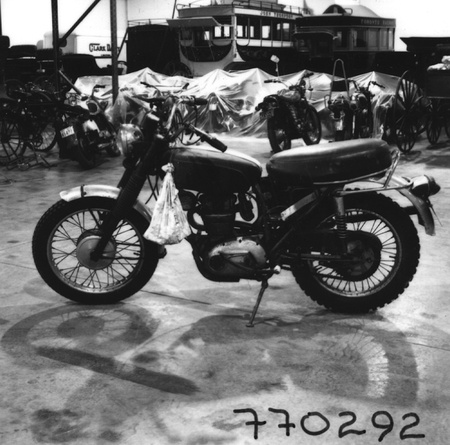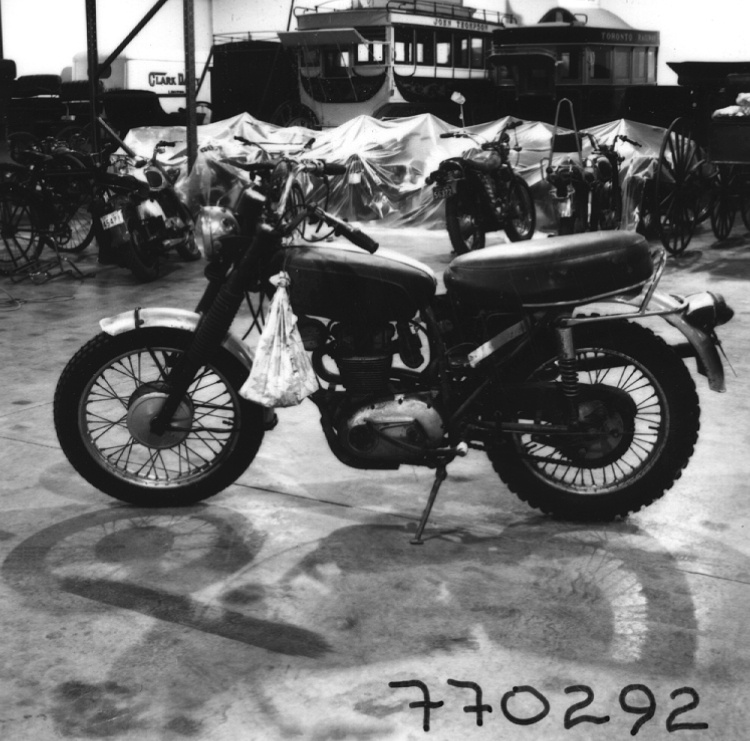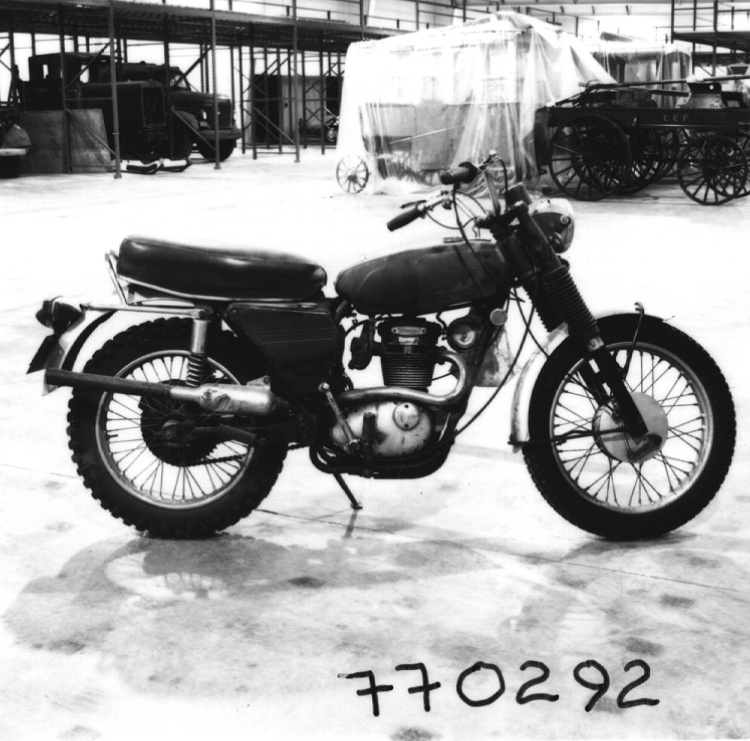Motorcycle
Use this image
Can I reuse this image without permission? Yes
Object images on the Ingenium Collection’s portal have the following Creative Commons license:
Copyright Ingenium / CC BY-NC-ND (Attribution-NonCommercial 4.0 International (CC BY-NC 4.0)
ATTRIBUTE THIS IMAGE
Ingenium,
1977.0292.001
Permalink:
Ingenium is releasing this image under the Creative Commons licensing framework, and encourages downloading and reuse for non-commercial purposes. Please acknowledge Ingenium and cite the artifact number.
DOWNLOAD IMAGEPURCHASE THIS IMAGE
This image is free for non-commercial use.
For commercial use, please consult our Reproduction Fees and contact us to purchase the image.
- OBJECT TYPE
- Standard/Single cyl/250cc/4cyc
- DATE
- 1968
- ARTIFACT NUMBER
- 1977.0292.001
- MANUFACTURER
- TRIUMPH ENGINEERING CO.
- MODEL
- TROPHY TR25W
- LOCATION
- Small Heath, United Kingdom
More Information
General Information
- Serial #
- TR2W 2990
- Part Number
- 1
- Total Parts
- 1
- AKA
- N/A
- Patents
- N/A
- General Description
- TUBULAR STEEL FRAME/ ALLOY ENGINE PARTS/ METAL PARTS/ CHROMED HANDLE BARS, FRONT & REAR FENDER/ SYNTHETIC SEAT & RAR LIGHT LENS/ GLASS HEADLIGHT/ RUBBER TIRES, HAND GRIPS, FORK GAITERS
Dimensions
Note: These reflect the general size for storage and are not necessarily representative of the object's true dimensions.
- Length
- 218.0 cm
- Width
- 73.6 cm
- Height
- 101.0 cm
- Thickness
- N/A
- Weight
- N/A
- Diameter
- N/A
- Volume
- N/A
Lexicon
- Group
- Motorized Ground Transportation
- Category
- Motorcycle vehicles
- Sub-Category
- N/A
Manufacturer
- AKA
- TRIUMPH
- Country
- United Kingdom
- State/Province
- Unknown
- City
- Small Heath
Context
- Country
- Unknown
- State/Province
- Unknown
- Period
- Unknown
- Canada
-
The Triumph TR25W Trophy 250 was introduced in 1968 for trail use as well as on the road. Triumph, one of the most famous motorcycle builders, was founded in Britain by two Germans, Siegfried Bettman and Mauritz Schulte, who set up the company in 1897 to build bicycles. They produced their first motorbike in 1902, and it was followed by a variety of machines, ranging from a 225 cc two-stroke to 500 cc four-valve singles. During the First World War, Triumph Motorcycles sold more than 30,000 of its Triumph Type H model to allied forces. In 1936 Triumph came under the same ownership as the Ariel company and a new designer, Edward Turner from Ariel, was appointed. Turner updated many of the existing designs and was responsible for Triumph's most significant creation, the Speed Twin that became the basis for Triumph's bikes until the 1980s. - Function
-
RECREATIONAL/ GENERAL TRANSPORTATION/ DESIGNED AS OFF-ROAD BIKE BUT COULD BE USED FOR HIGHWAY DRIVING - Technical
-
The Triumph TR25W Trophy 250 is a single-cylinder engine based on the BSA B25 Starfire. It differed from the BSA Starfire, however, as it did not have a valve-lifter mechanism in the rocker box. The basic cycle parts were the same, so the frame, forks and wheels were common between the two. This being said, the two makes looked quite different, for the rest of the parts were to suit the machine purpose or styled for the marque. As a start, the Triumph exhaust system ran at waist level on the right with the pipe tucked inside the frame under the oil tank, which a small tubular silencer plus heat shield at its end. The petrol tank carried the eyebrow tank badges while the dual seat was ribbed and without a tail hump. The footrests folded, and there was no centre stand but there was a prop and an undershield. Large, triangular side covers enclosed the oil tank and battery and carried the name Trophy 250 on each side, and the headlamp was small with the switches mounted on it. The wheels were 19 in. front and 18 in. rear and had trail tires butm while the front had a full-width hub, the rear was the old BSA crinkle hub with separate brake drum and bolted-on sproket. Single-leading-show drum brakes were used as well as sports mudguards, the rear on being supported by a stay that incorporated a seat rail. It was also the mounting for the rear side reflectors; the front ones went under the nose of the fuel tank with the horn. In 1969 the Trophy model was given the twin-leading-show front brake with bell-crank lever, along with a new exhaust pipe that ran outside the frame.The exhaust changed again in 1970 when it was moved over to the left, and for that year an oil-pressure switch was added and a warning light appeared in the headlamp shell. This was the last season for the Trophy which was replaced by two new models for 1971. This model was not a success, as Triumph enthusiasts did not see it as a real example of the marque and BSA offered a better, earlier yet comparable model. - Area Notes
-
Unknown
Details
- Markings
- STAMPED INTO CRANKCASE COVER BELOW CYLINDER HEAD ON LEFT SIDE IS: `TR25W2090'/ `TRIUMPH' IN CAST RAISED LETTERS APPEARS ON CRANKCASE ACCESS CAP ON LEFT SIDE & ON UPPER CYLINDER HEAD RIGHT SIDE
- Missing
- LEFT FRAME COVER/ BATTERY/ NO MFRS PLATES, DECAL ETC.
- Finish
- RUST ON WHEEL RIMS, FORKS, FUEL TANK, FRAME/ FRAME, FORKS, FUEL TANK ORIGINALLY PAINTED BLACK/ BLACK SEAT, TIRES, HAND GRIPS, FORK GAITERS/CHROMED HANDLE BARS, FRONT & REAR FENDERS
- Decoration
- N/A
CITE THIS OBJECT
If you choose to share our information about this collection object, please cite:
TRIUMPH ENGINEERING CO., Motorcycle, 1968, Artifact no. 1977.0292, Ingenium – Canada’s Museums of Science and Innovation, http://collection.ingenium.ca/en/id/1977.0292.001/
FEEDBACK
Submit a question or comment about this artifact.
More Like This
